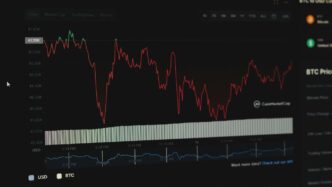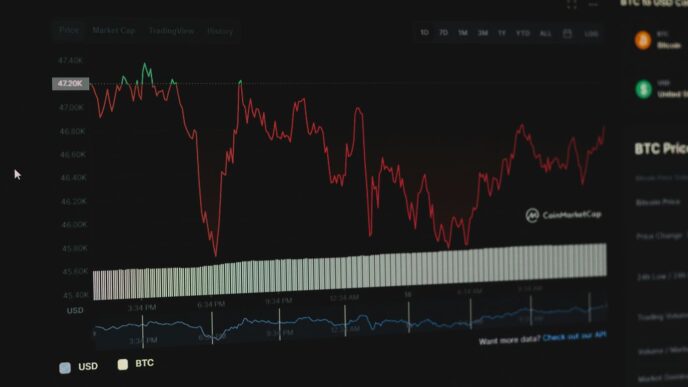Introduction to Effective Construction Management
Managing a construction project efficiently requires careful planning, seamless communication, and the right tools to ensure that everything stays on time and within budget. Whether handling a small renovation or a large-scale commercial project, implementing effective construction management strategies is crucial for success.
In today’s competitive market, leveraging advanced construction management software, such as Contractor Foreman, can significantly enhance workflow, improve budgeting accuracy, and streamline project execution.
What is Effective Construction Management?
Effective construction management refers to the application of strategic planning, resource allocation, and technology-driven tools to oversee a project from initiation to completion. It involves monitoring costs, managing risks, coordinating with stakeholders, and ensuring compliance with regulatory standards.
With the right construction management approach, companies can reduce delays, avoid cost overruns, and optimize resource utilization.
Key Components of Construction Management
- Project Planning and Scheduling
- Define project scope, objectives, and timeline.
- Utilize Gantt charts and scheduling software to visualize workflow.
- Assign resources efficiently to avoid bottlenecks.
- Budgeting and Cost Control
- Develop a detailed cost estimate covering materials, labor, and overheads.
- Monitor expenditures to ensure adherence to financial projections.
- Utilize tools like Contractor Foreman to automate cost tracking.
- Resource and Workforce Management
- Optimize labor allocation for maximum productivity.
- Implement safety protocols and training programs.
- Use digital platforms to track workforce efficiency.
- Risk Management and Compliance
- Identify potential risks and develop mitigation strategies.
- Ensure compliance with local building codes and safety regulations.
- Document and review contracts, permits, and inspections.
How Contractor Foreman Enhances Construction Management
Contractor Foreman is a comprehensive construction management software designed to simplify project planning, budgeting, and communication. Its user-friendly interface makes it an ideal choice for contractors, project managers, and construction firms seeking to improve efficiency.
Key Features of Contractor Foreman
- Real-Time Project Tracking – Gain instant visibility into project status.
- Budgeting & Expense Management – Keep costs under control with automated financial tracking.
- Scheduling & Task Management – Assign and monitor tasks to ensure timely completion.
- Document Control & Reporting – Store and manage permits, blueprints, and contracts.
- Communication & Collaboration Tools – Improve coordination between teams, suppliers, and clients.
Why Choose Contractor Foreman?
- Cost-Effective – Offers affordable pricing compared to other high-end project management tools.
- Cloud-Based Accessibility – Allows teams to manage projects from any device, anywhere.
- Scalable for Small and Large Projects – Ideal for independent contractors as well as large construction firms.
- Customizable Dashboards – Provides a personalized view of critical project metrics.
Best Practices for Implementing a Construction Management Plan
To ensure a seamless construction process, a structured approach must be followed. Here are some best practices to integrate into your construction management plan:
- Define Clear Project Goals and Objectives
- Establish clear milestones and performance indicators.
- Align objectives with client expectations and contractual obligations.
- Choose the Right Management Tools
- Use software solutions like Contractor Foreman for real-time data tracking.
- Implement mobile apps for remote project monitoring.
- Maintain Strong Communication
- Conduct regular meetings with stakeholders.
- Utilize cloud-based collaboration tools to track updates.
- Optimize Scheduling and Resource Allocation
- Use automated scheduling software to balance workload.
- Assign skilled workers to critical tasks for maximum efficiency.
- Monitor Costs and Control Budget
- Track all expenses and adjust the budget as needed.
- Implement digital invoicing and billing solutions.
How to Achieve On-Time, On-Budget Projects
Adhering to strict timelines and budget constraints is a challenge in construction. However, following these strategic steps can make the process smoother:
- Leverage Data Analytics – Use historical data to predict potential setbacks and address them in advance.
- Reduce Material Wastage – Plan procurement effectively to minimize excess inventory.
- Use Digital Project Management Tools – Platforms like Contractor Foreman help automate workflows and improve project accuracy.
- Perform Regular Quality Checks – Routine inspections help identify issues early, reducing costly rework.
- Stay Proactive with Risk Management – Develop contingency plans to address unforeseen challenges.
Conclusion
Effective Construction Management: [The Secret to On-Time, On-Budget Projects!] requires a combination of strategic planning, advanced software tools, and proactive communication. By implementing best practices and leveraging technology like Contractor Foreman, construction firms can significantly enhance efficiency, reduce costs, and ensure project success.
Whether managing small-scale residential projects or large commercial developments, the key to success lies in continuous improvement, proper resource allocation, and strong project oversight. Investing in the right construction management tools will not only streamline operations but also provide a competitive edge in the industry.














